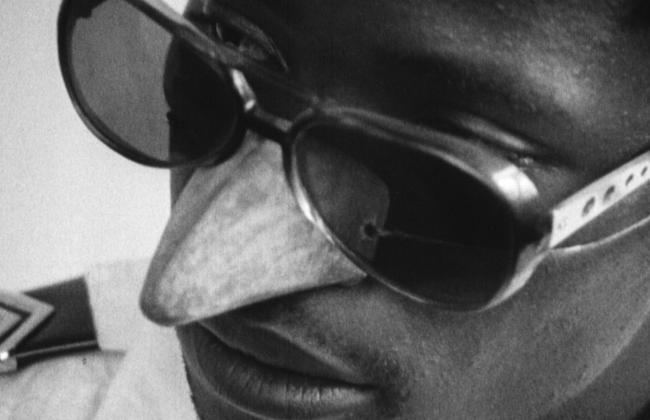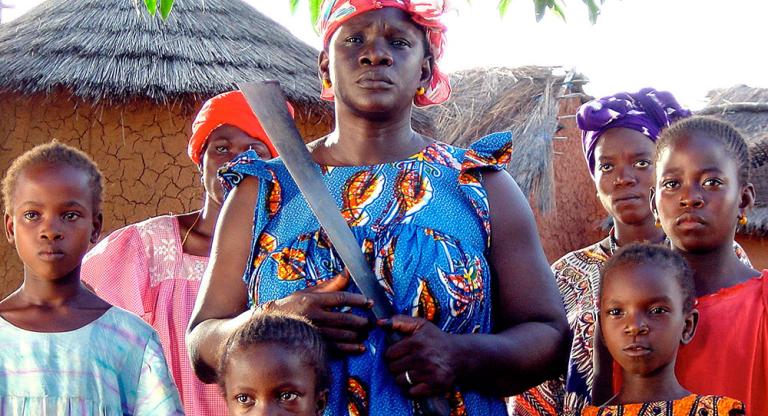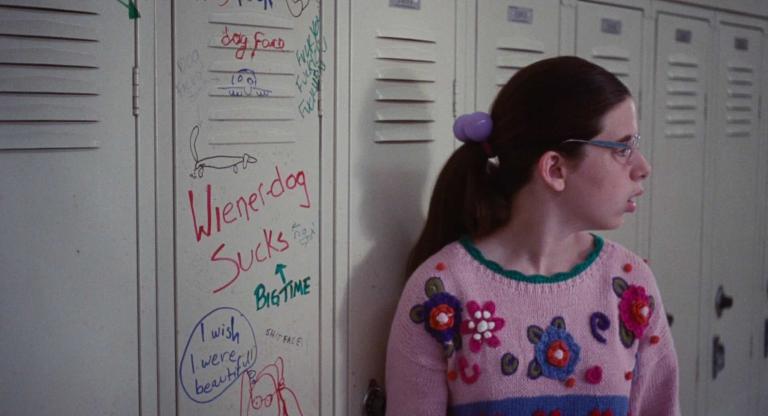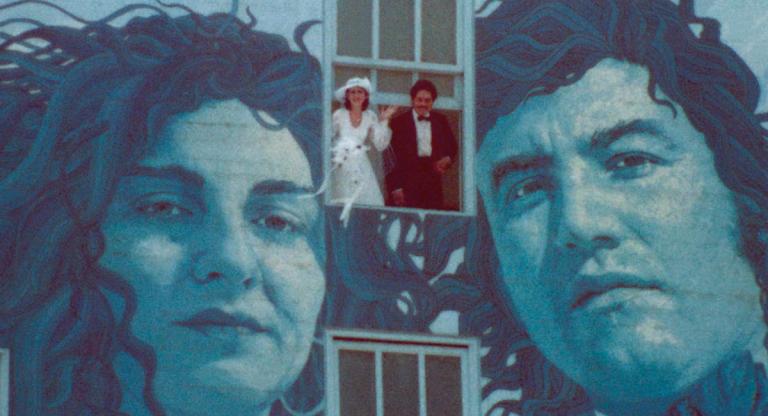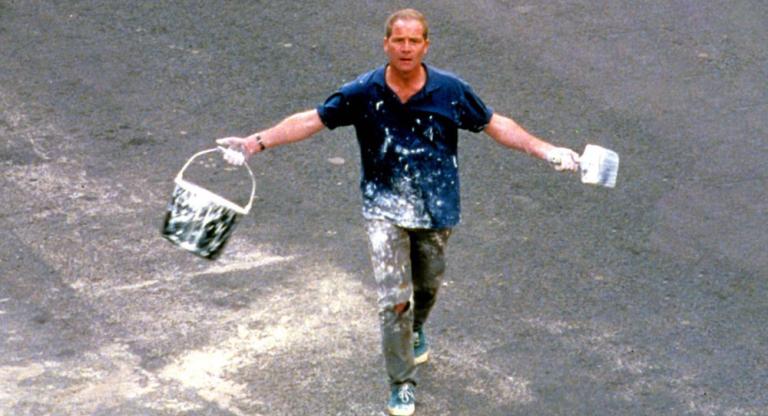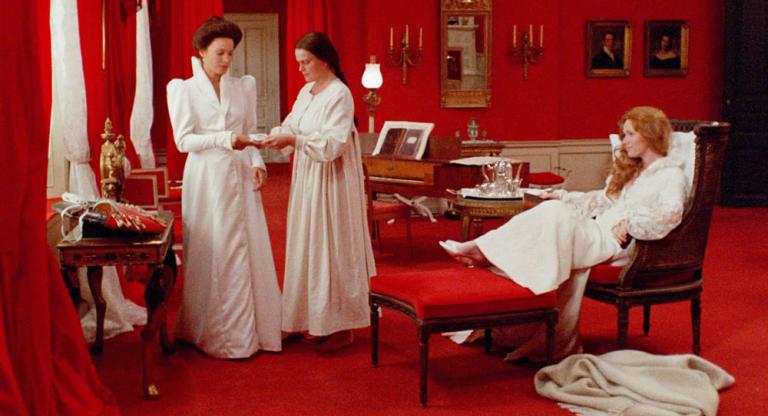“On June 16, 1960, the Mozambican people headed to Mueda to request their human dignity. Portuguese colonialism responded with bullets.” Thus declares one of the participants in the annual reenactment of the Mueda massacre, a political-cultural event that became constitutive of Mozambican national identity in the wake of the nation’s independence from Portugal in 1975. Shortly after independence, Brazilian director and Cinema Novo icon Ruy Guerra traveled to Mozambique, where he had been born when it was still a Portuguese overseas territory, to immortalize the fourth iteration of the yearly tradition. The result is a raw hybrid documentary that offers a glimpse into the cultural rituals and the revolutionary mentality in a young socialist nation.
In the postwar period, when colonial powers were shuddering in the face of national liberation movements throughout the Global South, Mozambican political leaders, exiled to Tanganyika (present-day Tanzania), had formed the Mozambican African National Union to advance their nationalist goals. In 1960, the organization sent delegates to the Mueda District Headquarters to begin a political dialogue about improving living conditions for Mozambicans. After two waves of delegates never returned, several thousand men and women from all over Cabo Delgado province gathered at the Mueda town square. When two more representatives of the petitioners were arrested in front of the crowd, the gathering turned into a raucous demonstration. The troops opened fire and killed 600 protestors. This event led to the formation of the Mozambique Liberation Front (FRELIMO), which, in 1964, launched what would be a decade-long anti-colonial armed struggle campaign against Portugal. It is no surprise, then, that the event attained mythical status in the nation’s imaginary and became foundational to its identity. The annual reenactment—performed at the actual site of the massacre by locals portraying petitioners, white colonial administrators, and their native henchmen—is a sort of ritualized purging of a collective trauma. “We’re aware that they’re laughing at the attitudes of the Portuguese colonizers. We’re aware that they’re laughing at the things that Portuguese people did to us here in this country,” relates one participant in order to explain the affective dissonance caused by hearing so much laughter from the crowd when the events portrayed are brutal and tragic.
Guerra has said that he wanted to turn “such a cruel act into an act of joy.” Sure enough, the reenactors deploy humor in surprising and disarming ways, much like the Ghanaian hauka sect whose grotesque parodies of colonial figures were famously captured by Jean Rouch in The Mad Masters (1955). The character of Tac-Tac Mandusi, for example, is an obsequious native guard doing the bidding of his Portuguese superiors with truly humiliating zeal, a ridiculous cipaio archetype. He stumbles over his feet to fulfill the administrators’ every wish, clicking his heels in a maladroit caricature of Western military discipline. But the film has dramatic tone shifts in store; when the provincial troops—played by active-duty soldiers from the FPLM—attack the crowd with rifle butts and open fire on them, the participants’ performances are disturbingly intense. The ugly tussles and frantic running for cover are so raw that it’s easy to forget we’re watching something that’s been choreographed.
Mueda, Memory and Massacre bears comparison with Eisenstein’s Ten Days that Shook the World (1928), not only because both films were conceived as pure propaganda but also because, through their use of documentary aesthetics and their temporal proximity to the events they depict, both films have come to fill the gap in the historical record. Just as no images exist of the storming of the Winter Palace, no part of the Mueda massacre was caught on film, but Fernando Silva’s handheld cinematography, channeling Marcello Gatti’s faux-newsreel camerawork in The Battle of Algiers (1966), creates an effective illusion that urgent historical moments are being directly captured.
Mueda, Memory and Massacre screens Wednesday, April 17, at BAMPFA as part of the series “Tell No Lies: Decolonizing Cinema in Angola, Cape Verde, Guinea-Bissau, and Mozambique.” The screening will be preceded by Licínio Azevedo’s Nhinguitimo and Jacques d’Arthuys and Jean Rouch’s Makwayela.
